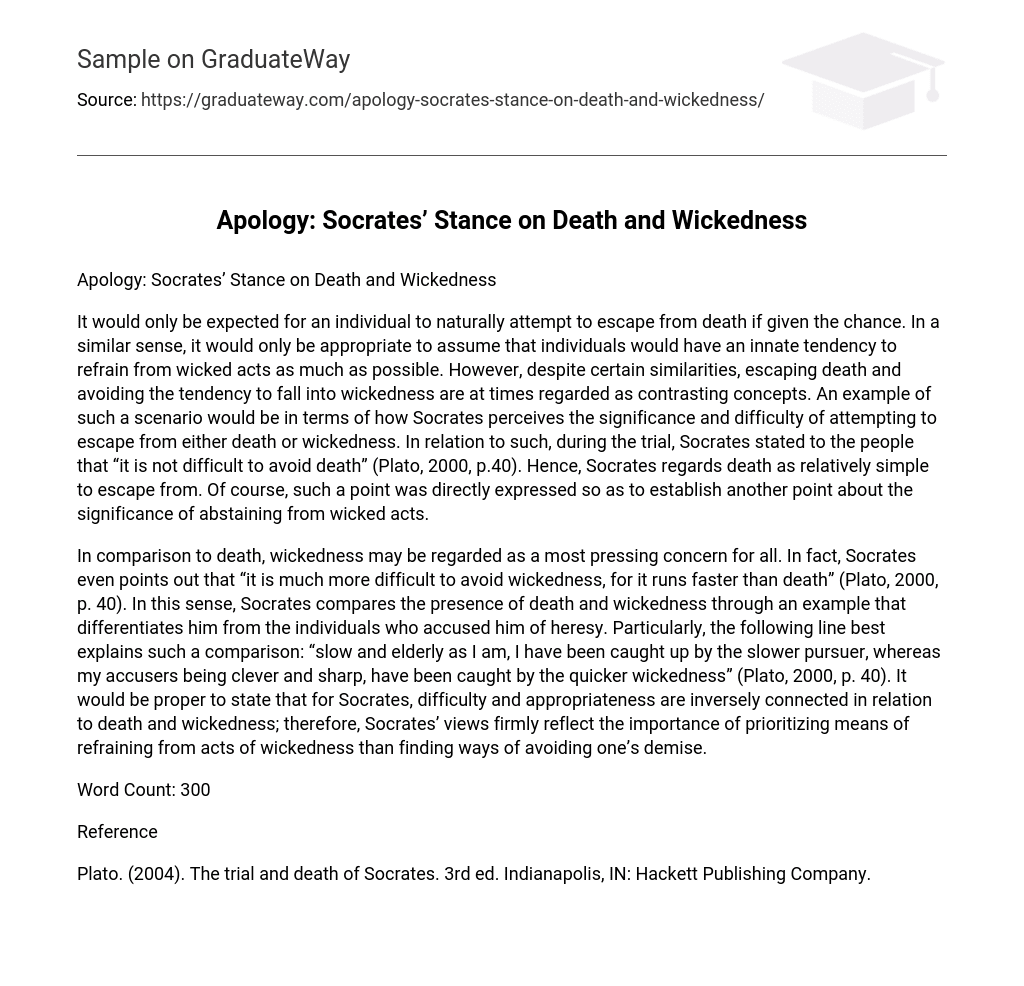It would only be expected for an individual to naturally attempt to escape from death if given the chance. In a similar sense, it would only be appropriate to assume that individuals would have an innate tendency to refrain from wicked acts as much as possible. However, despite certain similarities, escaping death and avoiding the tendency to fall into wickedness are at times regarded as contrasting concepts. An example of such a scenario would be in terms of how Socrates perceives the significance and difficulty of attempting to escape from either death or wickedness. In relation to such, during the trial, Socrates stated to the people that “it is not difficult to avoid death” (Plato, 2000, p.40). Hence, Socrates regards death as relatively simple to escape from. Of course, such a point was directly expressed so as to establish another point about the significance of abstaining from wicked acts.
In comparison to death, wickedness may be regarded as a most pressing concern for all. In fact, Socrates even points out that “it is much more difficult to avoid wickedness, for it runs faster than death” (Plato, 2000, p. 40). In this sense, Socrates compares the presence of death and wickedness through an example that differentiates him from the individuals who accused him of heresy. Particularly, the following line best explains such a comparison: “slow and elderly as I am, I have been caught up by the slower pursuer, whereas my accusers being clever and sharp, have been caught by the quicker wickedness” (Plato, 2000, p. 40). It would be proper to state that for Socrates, difficulty and appropriateness are inversely connected in relation to death and wickedness; therefore, Socrates’ views firmly reflect the importance of prioritizing means of refraining from acts of wickedness than finding ways of avoiding one’s demise.
Word Count: 300
Reference
Plato. (2004). The trial and death of Socrates. 3rd ed. Indianapolis, IN: Hackett Publishing Company.





